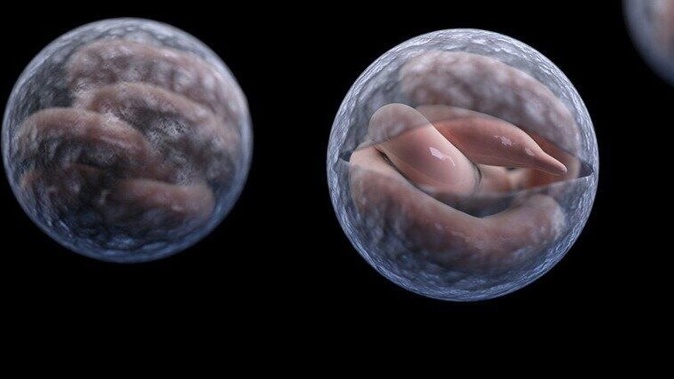
- An earlier crypto outbreak was linked to Hutt pools, which have been fully drained as a precautionary measure.
- The infection is now spreading through households, schools, and early childhood centres, with more cases expected.
- Health officials urge strict handwashing, soap over sanitiser, and two-week pool exclusion after symptoms end to prevent further spread.
A parasitic stomach bug continuing to spread across the Wellington region has prompted a renewed warning from Health New Zealand, Te Whatu Ora.
More cases of cryptosporidiosis, commonly known as crypto, have been reported, particularly in the Hutt Valley.
In an updated health notice sent to early childhood education centres (ECECs) and primary, and intermediate schools on Friday, Health NZ’s National Public Health Service warned that the highly contagious illness is now being transmitted not just through swimming pools, but among households, whānau and young children.
“We continue to receive reports of crypto cases from across Wellington, Porirua, Kāpiti, Hutt Valley, and Wairarapa, with most of the cases from the Hutt Valley area,” the notice said.
“It is likely that there are more cases in the community because not everyone reports being unwell with crypto.”
The latest advice follows a March 18 health alert and comes after an outbreak linked to Hutt Valley’s $68 million Te Ngaengae Pool complex.
Health officials confirmed cryptosporidiosis cases were connected to the toddler pool at Te Ngaengae and the hydrotherapy pool at Huia.
In response, Hutt City Council closed and disinfected both pools using high doses of chlorine and ultraviolet light in accordance with public health guidelines.
“As soon as we were made aware, we took immediate action,” read a statement at the time from Hutt City Pools + Fitness.
“Both pools were closed and underwent an intensive treatment process … There is no indication there had been further cases from the complex.”
As a further precaution, several pools were drained and refilled.
“We have decided to close the shallow leisure and deep leisure pools at Te Ngaengae … and the Huia hydrotherapy pool so they can be fully drained and refilled with fresh water.”
The medical officer of health, Dr Craig Thornley, said, “We think that there may well be more people in the community with the illness because not everybody who gets unwell gets to see a doctor and then gets tested … What we’re seeing is likely to be the tip of the iceberg.”
Thornley noted the number of confirmed cases in late March – 32 in total, with more than half in Hutt Valley – was “more than twice what the Wellington region would record for an entire year.”
He warned that alcohol-based hand sanitiser was ineffective against crypto: “The crypto bug is not well killed off by normal hand sanitiser so soap and water is best … The crypto bug stays around for a while, so don’t use swimming pools or splash pads or any other aquatic facilities for two weeks after diarrhoea has stopped.”
In Friday’s new update, Health NZ reiterated the need for education settings to take extra precautions to prevent further spread.
“Crypto can spread in early childhood centres or schools (especially among younger children/tamariki),” the notice said.
“Please continue to reinforce good hygiene messages and illness exclusion policies (return 48 hours after gastro symptoms have stopped).”
It also recommended:
- Soap and water instead of hand sanitiser, which does not kill the parasite.
- Close monitoring of tamariki handwashing, especially after illness.
- Cleaning with hot soapy water before applying disinfectants like bleach, as crypto is resistant to many cleaners.
- Strict pool hygiene rules, including ensuring children shower and toilet before swimming, and avoiding pools for two weeks post-illness.
- The parasite Cryptosporidium can cause vomiting, cramping, and diarrhoea, and is not easily detected in regular pool water testing.
Hutt City Pools + Fitness said: “Cryptosporidium is a parasite that can exist in pool environments even with standard chlorination. It is not detectable through regular pool water testing … While swimming pools can be a place where this type of bug spreads, cases remain rare.”
Fact sheets and swimming guidelines are available through the Health NZ website.
Take your Radio, Podcasts and Music with you









